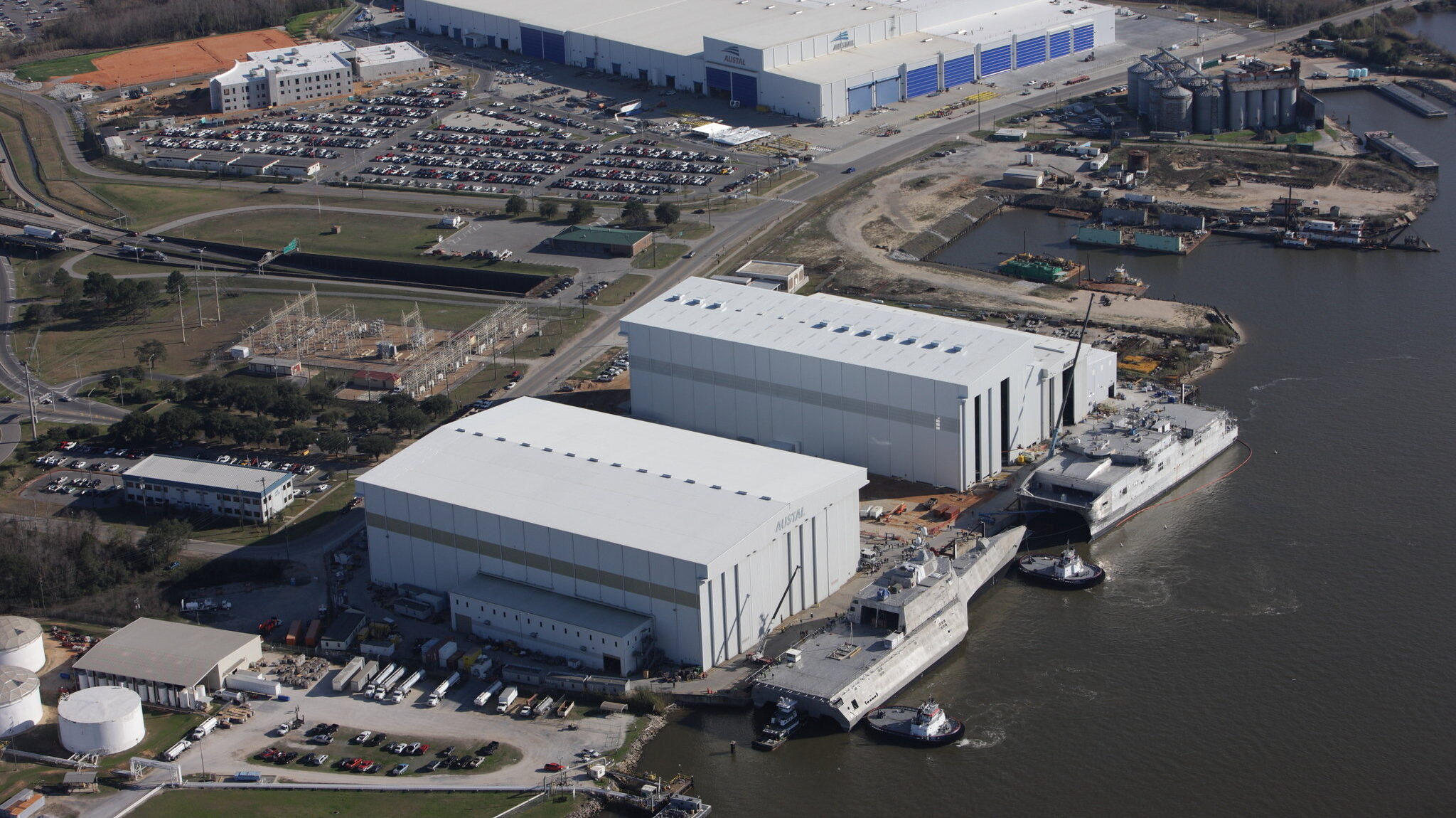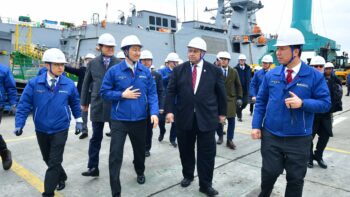
Austal’s shipyard in Mobile, Alabama. (Photo courtesy of Austal USA)
SNA 2023 — Austal USA, the Mobile, Ala.-based shipyard best known for its aluminum-hulled littoral combat ships, has begun producing two modules destined for Virginia- and Columbia-class submarines, another opportunity largely enabled by its investment in a steel production line.
“It really is an issue of this submarine industrial base having a significant capacity issue,” Larry Ryder, vice president of business development at Austal, told Breaking Defense last week during the Surface Navy Association’s annual symposium.
Ryder was alluding to the US Navy’s goal of consistently producing two Virginia- and one Columbia-class submarines each year for the foreseeable future until both production lines are complete. To do that, the Navy is relying on the country’s two major submarine builders — HII and General Dynamics Electric Boat — but capacity limitations are always a concern.
“We have an industrial capacity that’s limited. In other words, we can only get so many ships off the production line a year,” Chief of Naval Operations Adm. Michael Gilday said at a Heritage Foundation event in August.
Electric Boat is a prime contractor for both submarine classes and sub-contracted work on the modules to Austal. HII works with GDEB on both programs.
“You’ve got that requirement and the shortfall in the current industrial base. We have ramped up and added steel capacity,” Ryder said. “Working with the Navy and with Electric Boat, we got to a place” where Austal can contribute to the submarine production line.
The company will be “constructing and outfitting” the “Command and Control Systems Modules and Electronic Deck Modules” for both submarine classes, according to a statement issued about the work in December. Austal USA did not publicize a dollar value associated with the work, and a spokeswoman declined to provide one. Austal began manufacturing tanks for a Virginia-class submarine in November, and the first CCSM is scheduled to arrive in Alabama this month, according to the same statement.
The deal between Austal and Electric Boat “really leverages what Electric Boat needs to help them and what we’re good at,” Ryder added. The opportunity to produce the submarine modules was largely enabled by a 2020 joint investment deal between Austal and the Pentagon that allowed the company to open a steel production line.
The capacity issues surrounding the submarine industrial base are not new. They have been a concern for lawmakers for many years as the Navy approaches a critical decade in which it will begin serial production of the Columbia-class submarine in fiscal 2026 — a monstrous task expected to strain both the Pentagon’s budget and industry’s workforce.
“Austal USA is one of several pilot programs Electric Boat initiated with strategic partners to expand manufacturing capacity in the submarine industrial base,” an Electric Boat spokesperson told Breaking Defense in response to questions about the projected capacity strain.
“Using a focus factory approach, select vendors work closely with Electric Boat to adopt its practices, technology and quality assurance infrastructure to leverage their available manufacturing expertise and facilities to accelerate production,” the spokesperson continued.
It’s not the first time Austal has filled in a gap in the industrial base for one of its competitors. The company is also producing two sets of aircraft elevators that will eventually be shipped up to Newport News for installation onboard CVN-80 and 81.
“It kind of flew below the radar because it’s not a ship award,” Ryder said of the deal to produce the elevators. But “it was important for us to do what we could in the industrial base… no secret, we were looking for work.”






















